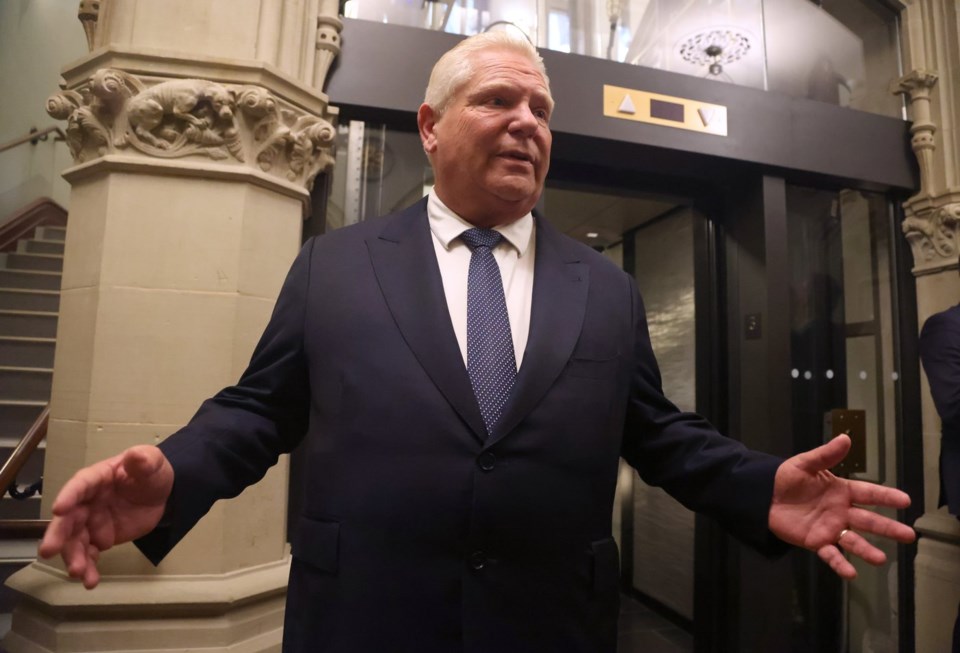OTTAWA — Ontario Premier Doug Ford says the federal government and municipalities across Ontario should mandate their workers to return to the office full time.
Speaking to reporters in Inglewood, Ont., Wednesday, Ford applauded the City of Ottawa's recent decision to require its employees to work five days a week in the office starting in the new year.
Ford said the federal government needs to "follow suit" and urged all other regions across Ontario" to do the same.
"It's time to bring people back to work, that they can be mentored, they can collaborate. It's a lot easier looking at someone in the eye than sitting over a telephone or a computer screen," Ford said.
Earlier this month, Ford announced that thousands of Ontario civil servants will return to the office full time by January.
The premier's comments come as momentum to reverse remote work policies builds, with major banks and companies, like RBC, Bank of Montreal and Rogers, increasing workers' required office presence.
Brampton Mayor Patrick Brown also said this month that he was following the province's lead by mandating that city employees return to in-office work full time next year.
Spokespeople for the governments of Yukon and the Northwest Territories said their remote work policies are currently being reviewed.
Canadian Labour Congress president Bea Bruske said it seems like there's a "very big shift" happening in terms of people returning to the office.
"I do think that people can be just as effective working remotely and yet at the same time there's something to be said for being collegial and being in the same space to have those water cooler conversations," Bruske said.
Federal public servants are currently required to spend at least three days a week in the office and executives are required to be in the office four days a week.
Sharon DeSousa, national president of the Public Service Alliance of Canada, said Ford’s "regressive stance" is "just out of touch."
"It ignores the many benefits of remote work not only for workers, but for the people who depend on the public services they deliver," DeSousa said.
Asked if she expects the federal government might be pressured to change its policy, Bruske said she anticipates the issue of remote work will be present at the bargaining table "more so than anything else" while the government negotiates new contracts with federal unions.
The issues of wages, job security and remote work were all front and centre during the 2023 public service strike, which saw tens of thousands of federal employees spend almost two weeks on picket lines across the country.
In June, the Public Service Alliance of Canada and the federal government restarted contract talks for more than 120,000 public servants.
The union, which has launched a national campaign promoting remote work alongside other federal unions, has argued that the government’s decision to mandate federal public service workers into the office at least three days per week "blatantly disregards their well-being and violates their collective bargaining rights."
It has also said that the decision was made without any consultation with unions or workers and that telework "improves work-life balance and increases productivity for workers."
This report by The Canadian Press was first published Aug. 27, 2025.
Catherine Morrison, The Canadian Press




